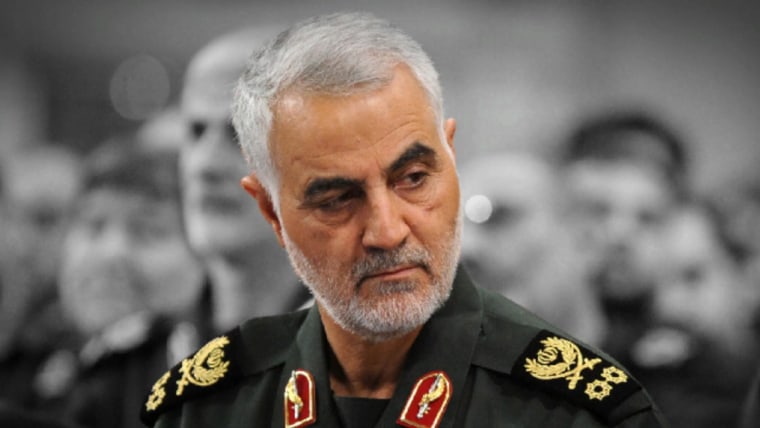The official line from the White House is that Donald Trump approved last week's mission to kill Qassim Soleimani, commander of Iran's Quds Force, in order to prevent an "imminent" attack. According to the administration, the president's decision was bolstered by U.S. intelligence.
At face value, that official line has been met with skepticism, in large part because Trump and his team have earned a reputation for habitual lying. But additional reporting over the weekend has cast further doubt on the dubious White House version of events. The New York Times published this report yesterday, for example.
In the chaotic days leading to the death of Maj. Gen. Qassim Suleimani, Iran's most powerful commander, top American military officials put the option of killing him -- which they viewed as the most extreme response to recent Iranian-led violence in Iraq -- on the menu they presented to President Trump.They didn't think he would take it. In the wars waged since the Sept. 11, 2001, attacks, Pentagon officials have often offered improbable options to presidents to make other possibilities appear more palatable.... By late Thursday, the president had gone for the extreme option. Top Pentagon officials were stunned.
Right off the bat, it's worth pausing to acknowledge an obvious truth: if the intelligence pointed to an "imminent" attack that could only be prevented by an airstrike targeting Soleimani, effectively leaving Trump with no other credible options, then top Pentagon officials wouldn't have been "stunned" by the president's decision. Indeed, they also wouldn't have presented Trump with such a radical move under the assumption that he wouldn't be so reckless as to actually choose it.
The same Times report added that there were "disputes" within the administration about the "significance" of the intelligence. The same article added that some officials "voiced private skepticism about the rationale" behind the strike, with one describing the U.S. intelligence as "thin."
A separate New York Times report cited a Defense Department official who said there was "nothing new in the threat presented by the Iranian general."
To be sure, Team Trump's absence of credibility, coupled with the political context, made it difficult to take seriously the White House's line about an imminent attack, necessitating an immediate assault. But the reporting brings the problem into sharper focus: Team Trump's official story about one of the president's most dangerous decisions doesn't appear to be true.
All of which leads to an important follow-up question: if the airstrike wasn't needed to prevent an imminent attack, why exactly did the president green-light such a radical offensive?
Trump thought the dangerous new posture would help his weak image. The Washington Post reported over the weekend that the president was motivated to act, at least in part, "by what he felt was negative coverage after his 2019 decision to call off the airstrike after Iran downed the U.S. surveillance drone, officials said. Trump was also frustrated that the details of his internal deliberations had leaked out and felt he looked weak, the officials said."
Trump was preoccupied with his predecessor. The same Post report added, "The president has long fixated on 2012 attacks on U.S. compounds in Benghazi, Libya, and the Obama administration's response to them, said lawmakers and aides who have spoken to him, and he felt the response to this week's attack on the embassy and the killing of an American contractor would make him look stronger compared with his predecessor."
With his impeachment trial looming, Trump saw value in wagging the dog. The New York Times' Rukmini Callimachi noted that Soleimani's whereabouts have been known before, and his resume of "killing-by-proxy is not a secret." So why launch this specific strike, to the surprise of the president's own team? As Callimachi put it, it's difficult "to decouple" Trump's decision "from the impeachment saga."
In case this isn't painfully obvious, it's a problem that the official White House line is unraveling. It's just as significant a problem that the alternate explanations are indefensible.
